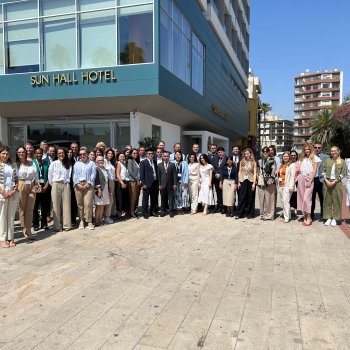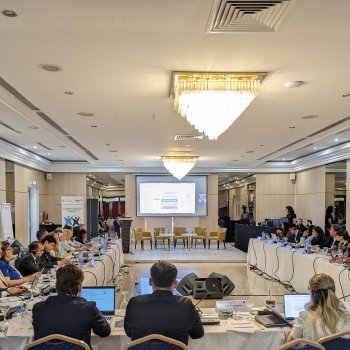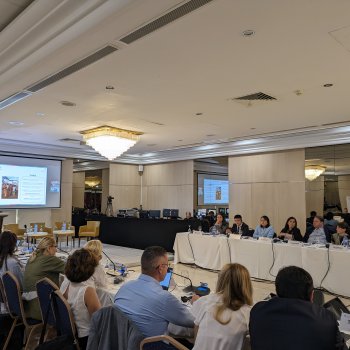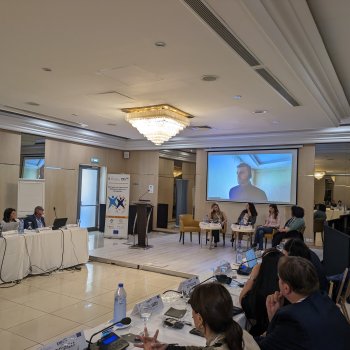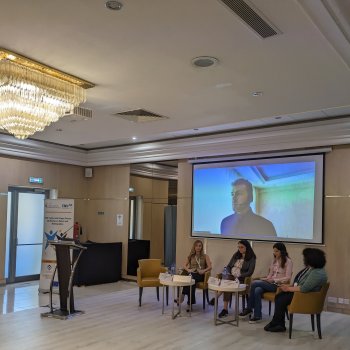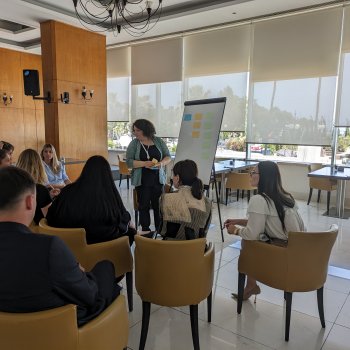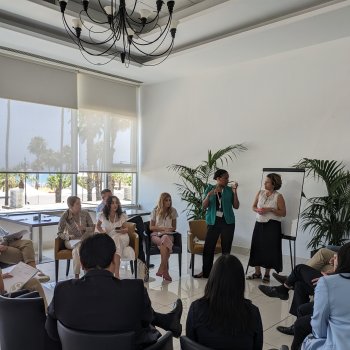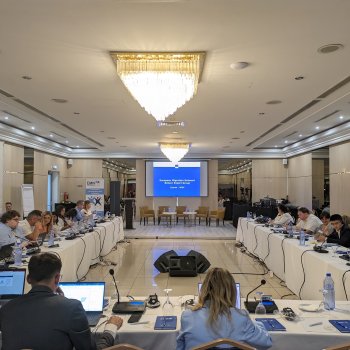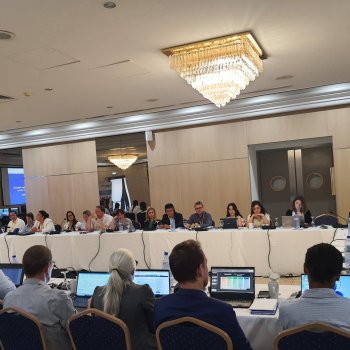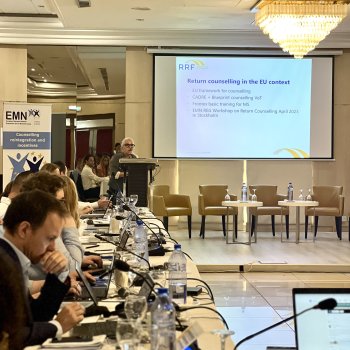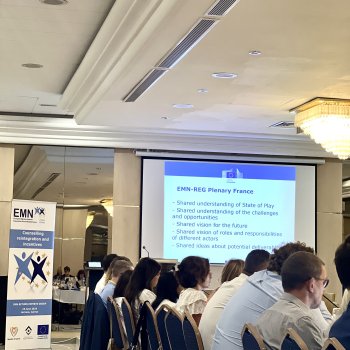On 18-19 June 2024, EMN Cyprus and the Prague Process organised the Workshop on return and reintegration (Thematic Component 2) in Larnaca, Cyprus. The meeting brought together representatives from 19 Prague Process states, the European Commission (DG HOME), Frontex, IOM, Samuel Hall and ICMPD.
The workshop marked the second joint activity between the Prague Process and EMN, providing a valuable platform for exchanging insights and experiences. Ms. Xenia Georgiadou, Head of EMN Cyprus, opened the meeting by highlighting the importance of unified efforts in achieving effective and humane migration management. Her sentiments were echoed by DG HOME’s Alexander Smits, chair of the EU Return Expert Group, who emphasized the focus on implementing the European Union Return Policy (EURP) and the need for quality support in member states. The interventions from the Czech Republic and the Republic of Moldova, leading the Thematic Component 2, stressed the importance of sustainable and dignified reintegration programs to ensure the respectful and sustainable reintegration of returnees.
The first day of the workshop was dedicated to evidence-based reintegration programs and operational support. Facilitated by ICMPD’s Nazanine Nozarian, the session featured Samuel Hall that provided a comprehensive overview of sustainable reintegration’s economic, social, and psychosocial dimensions as well as methodologies for monitoring reintegration, drawing from research and lessons learned in Moldova and Georgia (Child Reintegration Monitoring Toolkit; research on sustainable reintegration in rural areas during the COVID-19 pandemic).
During the panel discussion on concrete policies, Georgia presented its comprehensive reintegration program, developed in collaboration with IOM and local NGOs since 2015, which includes six key components and a new program specifically for child returnees. Moldova highlighted its recent initiatives, including a 2022 program to support victims of trafficking and exploitation, offering social services, vocational training, and job assistance, with a particular focus on vulnerable groups such as women. IOM’s presentation of the Health and Reintegration Study focused on improving healthcare access for returnees in Georgia by integrating health services with social support.
Participants then split into three working groups on 1) monitoring, evaluation, accountability, and learning (MEAL), 2) protection safeguards and 3) innovative approaches to sustainable reintegration.
The EMN Return Expert Group (EMN-REG) gathered on day 2, focusing on counselling, reintegration, and incentives. This session built on the EU strategy on voluntary return and reintegration. The Return and Reintegration Facility (RRF) and Frontex set the scene for discussions on EU-level reintegration tools as well as implementation of AVRR mechanisms.
Key topics discussed included:
- Reintegration tools and programs:
- EU Reintegration Programme (EURP) by Frontex
- Reintegration Assistance Tool (RIAT) by RRF
- Return, Readmission, Reintegration and Due Diligence Process by the IOM.
- RRF and Frontex Collaboration: focus on capacity building, training and the development of standardized digital environments for case management.
- IOM’s Global Standards in Return and Reintegration: tailored interventions for vulnerable groups and the importance of a rights-based approach and the “do no harm” principle.
Mr Madis Vainomaa from ICMPD’s Anti-Trafficking Team provided insights on the role of return counsellors in supporting returnees, particularly victims of trafficking. He emphasized the need for a trauma-informed approach and cultural sensitivity to ensure effective and humane support throughout the return process.
During the feedback session, participants expressed their overall satisfaction, particularly appreciating the in-depth discussions and opportunity to exchange good practices and challenges. The workshop underscored the importance of collaboration and knowledge-sharing in advancing effective and humane migration management, laying a strong foundation for future activities within the Thematic Component 2.
Subscribe to the Prague Process mailing list here in order to keep up to date with the latest developments outlined in our Quarterly Review.




